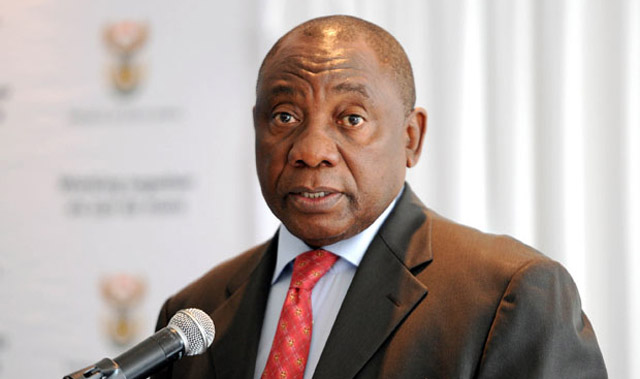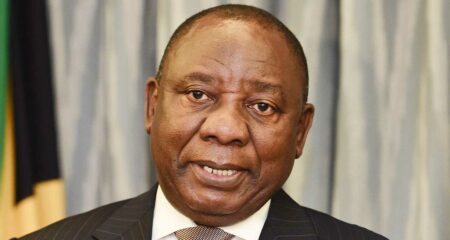
South Africa’s failing Post Office has lurched from crisis to crisis in recent years — and there appears to be no end in sight to the malaise. A much-vaunted turnaround strategy, which was supposed to be presented at the end of March is yet to materialise, and union unhappiness over the proposals could lead to more debilitating strike action.
The Communication Workers Union’s Aubrey Tshabalala is scathing in his comments on the current management of the Post Office, which he says is planning to cut more than 5 000 jobs.
“Management has circulated what they deem to be a turnaround strategy, without consulting the trade unions. The proposals include cutting 5 300 jobs, which we remain opposed to,” Tshabalala says in an interview with TechCentral.
Tshabalala says the union now intends writing to the minister of telecommunications & postal services and the relevant portfolio committee in parliament to put forward its members’ opposition to the proposals. “They should consider our proposals as labour.”
Tshabalala says Post Office administrator Simo Lushaba, who was appointed by telecoms minister Siyabonga Cwele in November last year, has come up with a “cut and paste” of the previous board’s turnaround strategy.
He complains that Post Office prices are regulated, whereas the private sector can set prices as they see fit. The Post Office, he says, needs to work out ways of retaining staff and paying them a decent wage — and not outsourcing work to third parties — while finding ways of growing the organisation beyond what it does today.
“We need to look at the role of the Post Office in transforming society and in responding to the needs of the technological era,” Tshabalala says.
He won’t discount the possibility of more strikes, despite the damage they have already done to the company.
“We cannot have a system that enables someone to work for 16 years without benefits. Managers use labour brokers to benefit themselves. We don’t look at the strikes in isolation. It is how we deal with the root of the problem, or corruption.
“The last board was useless and the strike had the desired effect,” he says. “We appreciate Cwele’s intervention in removing the board. However, posts for new board members were advertised and we were not asked for input.”
The union is not happy about the role played by Lushaba, the administrator. “We believed that his role was supposed to be similar to that of a board, but he is involved in operational matters. We have had no consultation and have only met with him once. For example, they increased the tariffs without consulting the unions. We are also not happy that his contract was extended to the end of May by the minister.”
The Communications Workers Union’s concerns are echoed by Sipho George, the general secretary of the Democratic Postal and Communications Union. “There are too many negative things in the turnaround strategy such as the issue of retrenchments. The long-term solution is that the company has to employ all casuals, honour its agreement with the unions and remunerate people correctly. Retrenchments are not a solution.”
In a radio interview with Talk Radio 702 in February, Cwele promised that a turnaround strategy would be available at the end of February.
Lushaba, meanwhile, promised parliament that he would present a full turnaround strategy in March.
Democratic Alliance shadow telecoms minister Cameron MacKenzie says that this date has now been pushed back to 15 May.

MacKenzie is doubtful the current management is on top of the challenges at the Post Office.
On 1 April, South African Airways stopped carrying international mail for the Post Office because of unpaid bills. Although the service was restored hours later, it’s indicative of the state of the institution. Last month, staff were informed that they would only be paid on the last day of the month, instead of the usual 25th. In October last year it tapped into a R400m surplus in its employees’ pension fund.
The company has yet to table its 2013/2014 annual report.
In February last year, President Jacob Zuma asked the Special Investigating Unit (SIU) to probe irregularities at the institution. Details about that investigation may finally become available in mid-May, according to MacKenzie.
The public protector, meanwhile, launched an investigation into the Post Office which was completed in September last year. However, spokesman Oupa Segalwe says the actual report is still being finalised. “It came to our attention that SIU is also seized with same matter and we have engaged them to see which aspects of the case they are involved in to avoid duplication.”
In December, Zuma announced that deputy president Cyril Ramaphosa would take charge of the ailing Post Office — along with Eskom and SAA. However, it is understood that his role is more one of oversight, and his hands may be full dealing with Eskom.
Ramaphosa’s office seems unaware of the growing unrest at the Post Office. While admitting the deputy president’s responsibility is to turn around the institution, spokesman Ronnie Mamoepa tells TechCentral that “interventions are on course”.
In the meantime, businesses are being negatively affected. Online retailer Bidorbuy’s 2015 shipping survey, published recently, indicates that 63% of sellers were negatively affected by the postal strike last year — with the hardest hit being small business owners. Many are finding alternative plans that don’t involve the Post Office.
Neither the Post Office nor the telecoms department responded to requests for comment. — © 2015 NewsCentral Media




